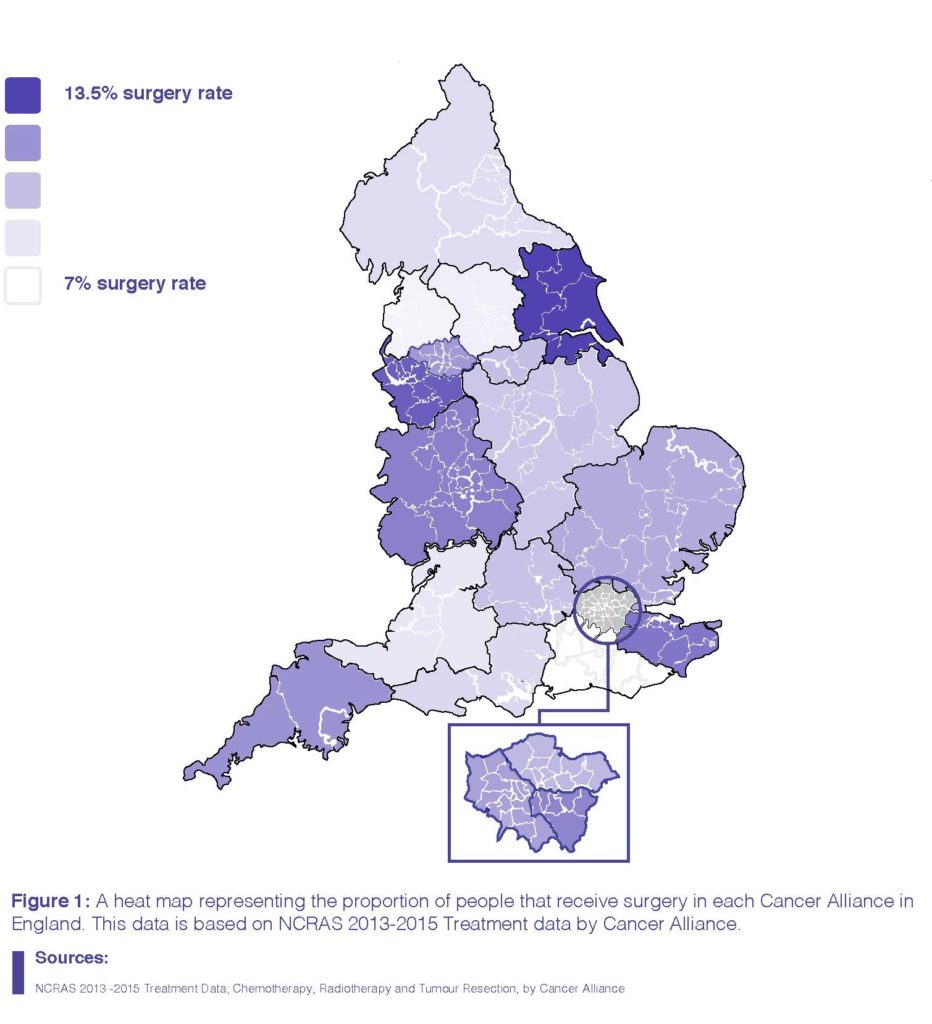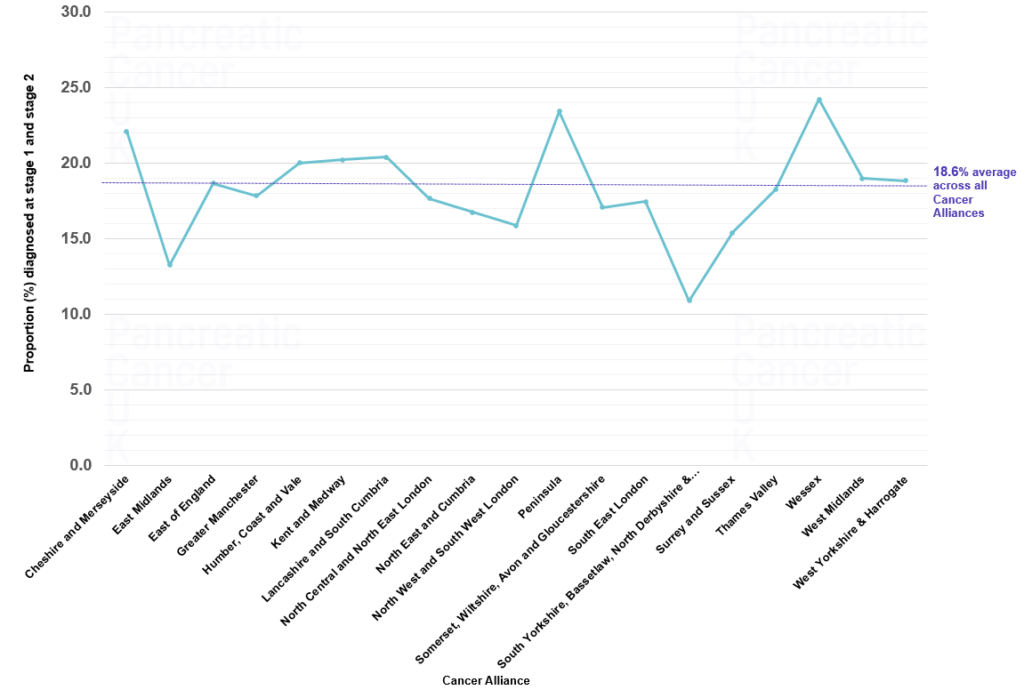Cancer Alliances
Working with Cancer Alliances is a key priority of our work
Working with Cancer Alliances is a key priority of our work to ensure that people with pancreatic cancer receive the best standards of diagnosis, care and treatment as recommended by the NICE guidelines and Quality Standard for pancreatic cancer.
What are Cancer Alliances?
There are 19 Cancer Alliances across England bringing together different hospital trusts and health providers to transform cancer services and patient experience. They were set up as part of the 2015 England Cancer Strategy: Achieving World Class Outcomes, with the aim to improve diagnosis and treatment and lead the coordination and delivery of care in local cancer services.
Our Cancer Alliance engagement
In light of the new NHS Long Term plan, Cancer Alliances will have a leadership role in implementing cancer care in their area. Our aim is to work together with Cancer Alliances to ensure that people with pancreatic cancer will benefit from the strategic priorities set in the long term plan.
This includes the introduction of the new 28 day faster diagnostic standard from referral by 2020, the nationwide roll out of the Rapid Diagnostic Centres (RDCs) in 2019 and the early diagnosis ambition for 75% of all cancers to be diagnosed at stage 1 and stage 2 by 2028.
We are also discussing with Cancer Alliances about developing an optimal pathway for pancreatic cancer similar to the lauded National Optimal Lung Cancer Pathway (NOLCP), using transformation funding streams available to Cancer Alliances to instigate work which will improve healthcare services for pancreatic cancer.
How to get involved with Cancer Alliances
If you are a Cancer Alliance, a Health Commissioner, a pancreatic cancer Clinical Specialist or a member of the public, contact us at policy@pancreaticcancer.org.uk to learn more about the work we do and how you can get involved.
Pancreatic cancer outcomes in your area
Despite poor outcomes both globally and across the UK for pancreatic cancer, variation in treatment and care can still contribute to even poorer outcomes. Analysing access to surgery (Figure 1) and the proportion diagnosed at an early stage (Figure 2) allows us to build a better picture of care and treatment across the UK.


Figure 1. A heat map representing the proportion of people that receive surgery in each Cancer Alliance in England. This data is based on NCRAS 2013-2015 Treatment data by Cancer Alliance.
Download the Cancer Alliance surgery heat map (PDF)


Figure 2. Graph representing the proportion of patients diagnosed with pancreatic cancer at an early stage (stage 1 and stage 2) for each Cancer Alliance in England (2016).
We are keen to use data and analysis to highlight best practice and areas of improvement to help support Cancer Alliances in setting pancreatic cancer as a strategic priority and reducing inequalities in care.

